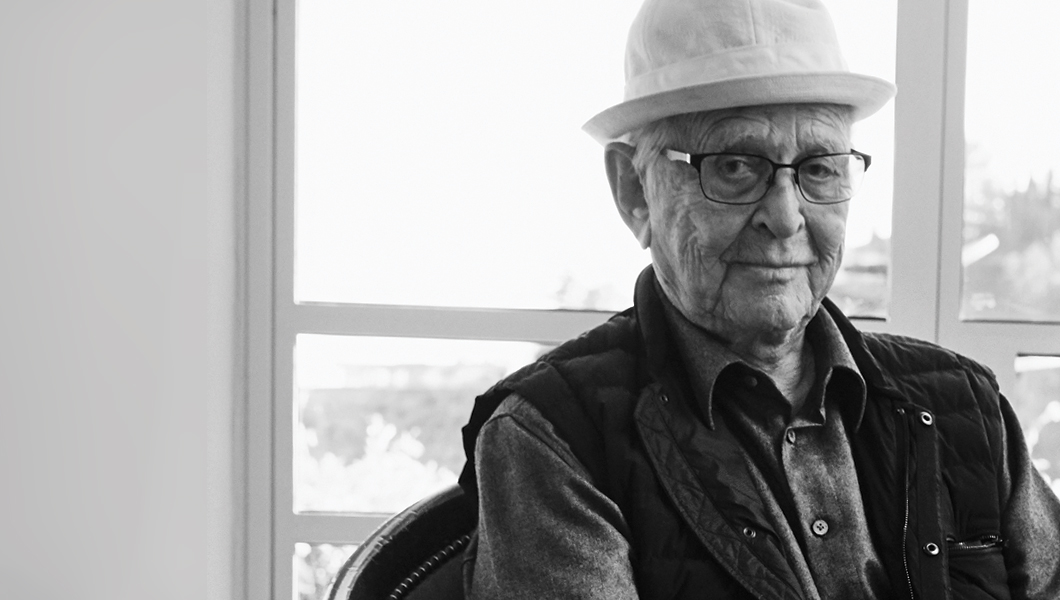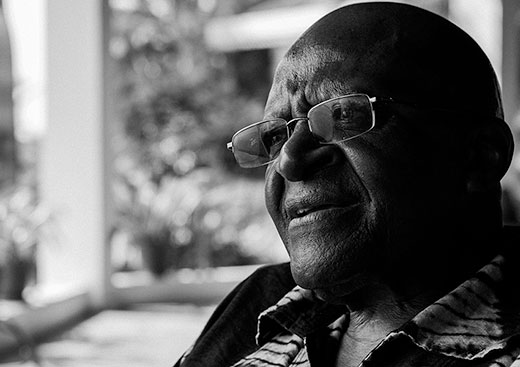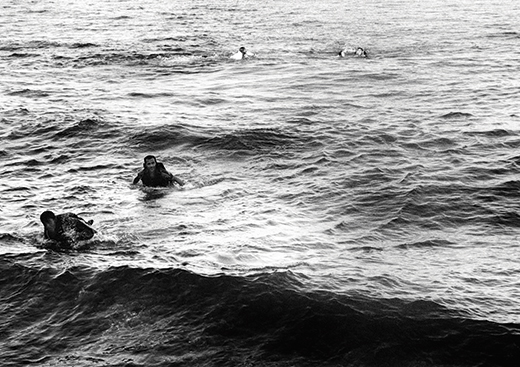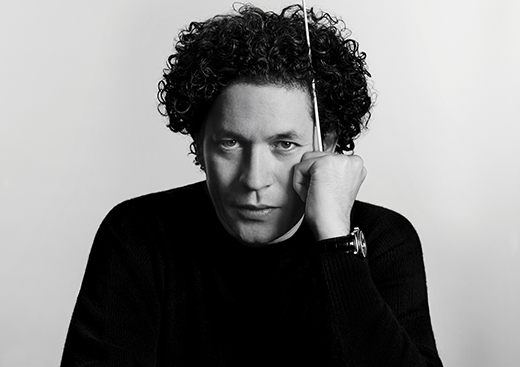Writer and producer Norman Lear has been called a one-man Golden Age of Television, responsible for such hit ’70s shows as All in the Family, Maude, The Jeffersons and Good Times. Tackling such tough subjects as racial bigotry, homophobia and abortion, Lear and his colleagues enlarged the world of TV’s sitcoms and drew huge audiences. He had three of the top four shows on the air during one season, five of the top nine on another.
Now 94, Lear is still developing new television shows and still dedicated to the social activism that has long accompanied his television work. He launched People for the American Way to challenge the mixing of religion and politics and the University of Southern California’s Norman Lear Center to analyze the impact of entertainment on news and culture. A World War II veteran who flew 52 missions, he later purchased a July 4, 1776, copy of the Declaration of Independence for $8.1 million, then sent it across America with historical exhibits and voting information.
BARBARA ISENBERG: When your World War II tour of duty ended in 1945, did you have a career plan?
NORMAN LEAR: As a kid of the Depression, with parents who were out to lunch, I needed a role model, and that was my Uncle Jack, who used to flip me a quarter. I wanted to be an uncle who could flip a quarter. He was a press agent, and I’m not sure I knew what a press agent was, but I wanted to be him. When I was overseas, I wrote a one-pager announcing my release from the Air Force and how brilliant I would be as a press agent, and I sent it to Uncle Jack. He sent it out, and I got a job in New York writing amusing things about stars and Broadway shows for newspaper columnists.
BI: How did you make the leap from press agent to comedy writer?
NL: I moved to California, which is where I met Ed Simmons, who wanted to be a comedy writer, and that turned my attention to comedy writing. One night, our wives were at the movies, and we wrote a parody of The Sheik of Araby. There were a lot of nightclubs around, and we sold it for $40 to the first club we went to. That was what I made in a week trying to be a press agent and selling door to door. We wrote a piece for Danny Thomas that he did at Ciro’s nightclub, and a major agent in the audience called us. Soon we were writing for Dean Martin and Jerry Lewis, and we did TV specials for people like Jack Benny and Danny Kaye.
BI: Did you ever think you’d write for television?
NL: No. There was no television when I was thinking about making a living. My mother heard me singing in the shower and thought maybe I could be a cantor, but I was never asked by my parents what I wanted to be.
BI: What were some of the shows on TV when you started out?
NL: There were The Beverly Hillbillies, The Flying Nun, Petticoat Junction and Father Knows Best. The biggest problems an American family faced in those shows were the boss is coming to dinner and the roast is ruined or mother dented the car and how will the kids help her keep the news from daddy.
BI: How did All in the Family come about? You and your producing partner, Bud Yorkin, were working mostly on movies by that time.
NL: Bud was making a Pink Panther film in England, saw the U.K. television series Till Death Us Do Part, about a bigoted father and his liberal son, and told me about it. I was getting divorced, I was in great difficulty financially and in live television you owned nothing. I knew I had to do something that had reruns, and I was thinking about that when Bud mentioned Till Death Us Do Part. Within two weeks, I had written 82 pages of notes for a show that became All in the Family.
BI: You borrowed a bit from your own family experiences when you were writing All in the Family, didn’t you?
NL: Well, my dad did have a floor model Atwater Kent radio, and he controlled the radio dial from a red leather chair next to it much like Archie would control the TV dial later. He used to call me “the laziest white kid he knew.” And when I screamed at him that he was putting down a race of people just to call his son lazy, he would yell back, “That’s not what I’m doing, and you’re also the dumbest white kid.” He would also tell my mom to stifle herself, just like Archie told Edith.
BI: When the first episode ran in January 1971, CBS started the show with a disclaimer and hired extra switchboard people to deal with viewer responses.
NL: There was no subject we did that was not an everyday event in our family or our extended family or in the house up the street. But people would say to me, “If you have a message, pal, there’s Western Union. You have no right to use television.” I used to say, “That’s not what we’re doing. We’re trying to bring an audience to its knees with laughter.”
BI: Are you saying that shows like All in the Family and Maude, with their story lines about racism, attempted rape and other rarely discussed topics, weren’t written to inform and persuade?
NL: It was years later when I began to accept that there was a message. I’m a grown man with strong feelings, and of course it’s reflected in my work. But there were messages on TV before, too. Their message was that there were no economic issues, no moral questions, no problems. That is also a message.
BI: How do you see America today?
NL: I see America the way Dwight Eisenhower warned us it could be in his farewell address, talking about the possibility of a military-industrial complex taking us over. I feel that is exactly what is choking us right now, delivering the fruits of everybody’s labor to the 1 percent. So many people in our country felt hopeless to such a degree that they would throw their weight behind a Donald Trump.
BI: Any thoughts about how America came up with two such polarizing presidential candidates in 2016?
NL: It was the American people’s way of saying: “This is the kind of leadership you give us? Take this.” And when I say that, I’m not just thinking of politics. I’m thinking of Wells Fargo, the pharmaceutical company Mylan’s EpiPen price increases, the airbags from the Takata Corporation—I’m thinking of leadership across the board.
BI: You recently were an executive producer on the Epix TV series America Divided and investigated housing inequality. What surprised you most about what you found out?
NL: What surprised me is that I could learn what I learned and still sleep well after learning it. I don’t know how to explain caring as much as I think I care and doing as much as I think I do and realizing now and again how little it is. Then again, every little bit matters.
BI: Your popular 1975 show, One Day at a Time, reimagined with a Cuban-American family, is set to air early next year on Netflix. What is the status of your proposed TV show, Guess Who Died, set in a retirement community?
NL: We’ve had more interest lately, and my guess is that it will happen. The fact is that older people are the fastest-growing demographic with the most expendable income. And we watch a lot of television.
BI: It’s your demographic, of course. Do you feel 94 years old?
NL: I am the peer of whoever I’m talking to. If I am talking to a 15-year-old, that’s who I am. If I’m talking to a 50-year-old, that’s who I am. I see too many 75-year-olds who seem much older than I feel. I’m aware I’m an older person, and I wish my back didn’t hurt and my legs didn’t weigh 1,000 pounds. But I go to bed at night and can’t wait for the first taste of coffee in the morning.
BI: What do you think accounts for you not feeling your age?
NL: I think it’s living in the moment and being aware that whatever I’m doing, I’ve spent all my life getting there to do it. Like this interview. It is an indisputable fact that this interview took me 94 years, some weeks and some days to get to. And for you and everyone who reads it, it took every split second of your lives. So is the moment important or not? How can anyone deny the importance of any moment that took all of your life to get to?
—





